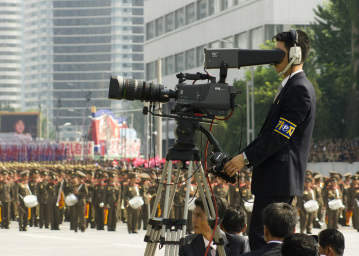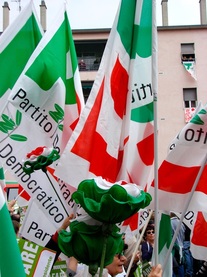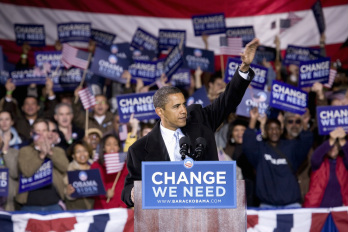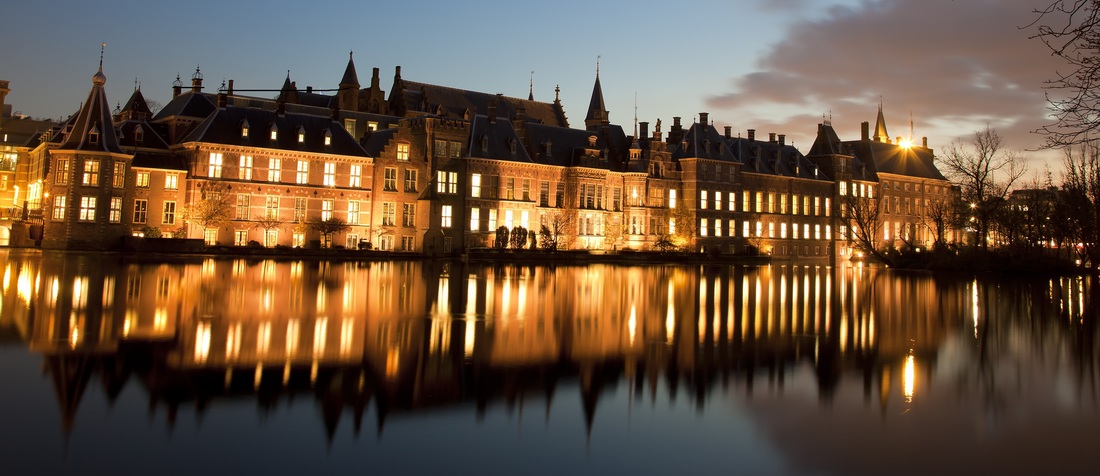Teaching

Media in the Public Domain - Bachelor Seminar, Communication Science, VU University Amsterdam, Spring 2012, 2013, 2014
The central question of this course is how do the media function in the public domain and how should they function? We will examine this question from the viewpoint of the citizen, the media and public actors (government, political parties, public organizations, social movements and terrorist organizations). The main theories and research methods in political communication will be covered. We will discuss a large variety of topics. What is the role of the media in a democracy? What is public opinion and can it be measured? What role do the media play in the formation of public opinion? Who has the power in the interdependent relationship, the journalist or the politician? In which ways do organizations try to influence the political agenda? What is the role of the media system on the information environment of citizens? What is the role of the media in times of terrorist attacks and war? How do political parties make use of paid and free publicity to wage voters in election campaigns? How should a moderator behave in a television debate? What is the influence of images? What is the effect of new media on the public domain. These and other questions will be discussed and illustrated with examples from the news and professional practice. In the past campaign managers, journalists, press officers and opinion pollsters were guest lecturers in this course. Download syllabus here.
The central question of this course is how do the media function in the public domain and how should they function? We will examine this question from the viewpoint of the citizen, the media and public actors (government, political parties, public organizations, social movements and terrorist organizations). The main theories and research methods in political communication will be covered. We will discuss a large variety of topics. What is the role of the media in a democracy? What is public opinion and can it be measured? What role do the media play in the formation of public opinion? Who has the power in the interdependent relationship, the journalist or the politician? In which ways do organizations try to influence the political agenda? What is the role of the media system on the information environment of citizens? What is the role of the media in times of terrorist attacks and war? How do political parties make use of paid and free publicity to wage voters in election campaigns? How should a moderator behave in a television debate? What is the influence of images? What is the effect of new media on the public domain. These and other questions will be discussed and illustrated with examples from the news and professional practice. In the past campaign managers, journalists, press officers and opinion pollsters were guest lecturers in this course. Download syllabus here.

The Future of Political Parties - Bachelor Seminar, Political Science, University of Amsterdam (UVA), Autumn 2011
Political parties are essential for representative democracy. Last decades political parties in Western Europe have increasingly come under pressure. They are facing numerous challenges; decreasing party loyalty, increasing electoral volatility, decreasing party membership, changing role of the mass media, new technological developments (among others in the area of campaigning), institutional changes (among others the rules on party financing), new issues that cut through the traditional left-right dimension, the rise of populist parties, other types of political activism and a changed electorate (among others higher educated, better informed). Political parties have no other option than to try to adapt to these new circumstances. These developments and the weakened position of political parties in recent politics have stirred debate. Do political parties still have a future and what does this mean for representative democracy? This question is central to this course. In this course we will discuss the origin of political parties, the functions that they have, the developments that threaten political parties nowadays, the way political parties try to deal with these challenges and the ways in which political parties as a results have transformed. This course will not only focus on the scientific debate, but also connect to current themes, for instance by discussing the substantial loss of the Christian Democrats and the growth of the relatively new rightwing populist Freedom Party last Dutch Parliamentary Election Campaign. Download syllabus here.
Political parties are essential for representative democracy. Last decades political parties in Western Europe have increasingly come under pressure. They are facing numerous challenges; decreasing party loyalty, increasing electoral volatility, decreasing party membership, changing role of the mass media, new technological developments (among others in the area of campaigning), institutional changes (among others the rules on party financing), new issues that cut through the traditional left-right dimension, the rise of populist parties, other types of political activism and a changed electorate (among others higher educated, better informed). Political parties have no other option than to try to adapt to these new circumstances. These developments and the weakened position of political parties in recent politics have stirred debate. Do political parties still have a future and what does this mean for representative democracy? This question is central to this course. In this course we will discuss the origin of political parties, the functions that they have, the developments that threaten political parties nowadays, the way political parties try to deal with these challenges and the ways in which political parties as a results have transformed. This course will not only focus on the scientific debate, but also connect to current themes, for instance by discussing the substantial loss of the Christian Democrats and the growth of the relatively new rightwing populist Freedom Party last Dutch Parliamentary Election Campaign. Download syllabus here.

The Making of Electoral Campaigns - Bachelor Seminar, Political Science, University of Amsterdam (UVA), Spring 2011
This course explores and analyzes electoral campaigns. The course begins by offering an overview of international research on political campaigning. Moreover, it looks at key actors in political campaigning, such as political parties and candidates as well as campaign advisers and marketing techniques. In so doing the most important features of professionalized campaigning will be discussed and disentangled. The course will provide an overview of the historical development of electoral campaigns and each phase will be analyzed in conjunction with its real word implications. The course will pose key questions in the campaign literature, such as “Do campaigns matter?” and “What are the tangible effects of electoral campaigns?” and students will be challenged with the task of providing answers. Throughout the course the last Dutch and British Parliamentary Elections will serve as cases of analysis. Students are expected to write a bachelor thesis on one of the discussed aspects of electoral campaigns and make use in their analysis of available (semi) party controlled sources, such as party election broadcasts (television/radio ads), party websites, party conference speeches, election debates and party YouTube/Twitter accounts. Download syllabus here.
This course explores and analyzes electoral campaigns. The course begins by offering an overview of international research on political campaigning. Moreover, it looks at key actors in political campaigning, such as political parties and candidates as well as campaign advisers and marketing techniques. In so doing the most important features of professionalized campaigning will be discussed and disentangled. The course will provide an overview of the historical development of electoral campaigns and each phase will be analyzed in conjunction with its real word implications. The course will pose key questions in the campaign literature, such as “Do campaigns matter?” and “What are the tangible effects of electoral campaigns?” and students will be challenged with the task of providing answers. Throughout the course the last Dutch and British Parliamentary Elections will serve as cases of analysis. Students are expected to write a bachelor thesis on one of the discussed aspects of electoral campaigns and make use in their analysis of available (semi) party controlled sources, such as party election broadcasts (television/radio ads), party websites, party conference speeches, election debates and party YouTube/Twitter accounts. Download syllabus here.
Dutch Politics - Master Conversion Course, Political Science, Leiden University, Winter 2007
The goal of the course Dutch Politics is to offer a general introduction in the Dutch political system and the scientific, political analysis of that system. In addition, to the main theoretical concepts this course will discuss views derived by conducted research on the functioning of the Dutch political system. Topics that will be covered are democracy, state building, pillarization and depillarisation, party families, political parties, electoral systems and voting behaviour, coalition building, administrative renewal, government and parliament, policymaking process, Europe and the Netherlands, the strengths and weaknesses of consensus government.
The goal of the course Dutch Politics is to offer a general introduction in the Dutch political system and the scientific, political analysis of that system. In addition, to the main theoretical concepts this course will discuss views derived by conducted research on the functioning of the Dutch political system. Topics that will be covered are democracy, state building, pillarization and depillarisation, party families, political parties, electoral systems and voting behaviour, coalition building, administrative renewal, government and parliament, policymaking process, Europe and the Netherlands, the strengths and weaknesses of consensus government.
See full CV Annemarie Walter for complete teaching experience.

